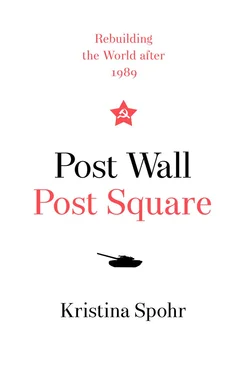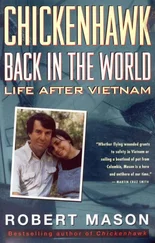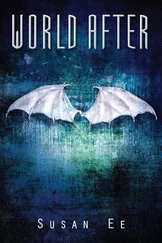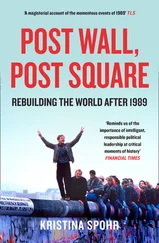Gorbachev answered with a tour d’horizon of his own. He stated that ‘all of us feel we are at a historic watershed’: international politics is shifting from a ‘bipolar’ to a ‘multipolar’ world, while the whole human race is facing truly global challenges such as climate change. Specifically, the American and Soviet peoples were following a strong desire to ‘move toward each other’; governments, however, were lagging behind. Gorbachev strongly objected to the Cold War triumphalism he felt was present in US government circles. Acknowledging that Bush had shown he was different, Gorbachev now sought in a formal way the respect of the United States. He was emphatic that he did not wish to be lectured or put under pressure by the Americans. What he wanted was to ‘build bridges across rivers rather than parallel to them’; he looked for new approaches and new ‘patterns of cooperation’ that befitted the ‘new realities’. He also referred back to the productive, cooperative relationship he had eventually managed to establish with Ronald Reagan despite ‘times of impasse’. He still wanted arms control but, furthermore, he wanted the USSR to get involved in the world economy at large. This was surprising talk coming from a Soviet leader. [15]
A lot of the first plenary session was the usual for-the-record mutual positioning and ideological point-scoring that occurred at the start of any superpower meeting. But behind their rhetoric were already hints of something more personal and significant. Bush deliberately reached out to Gorbachev. ‘I hope you have noticed that as dynamic change has accelerated in recent months, we have not responded with flamboyance or arrogance … I have conducted myself in ways not to complicate your life.’ That’s why, he added, ‘I have not jumped up and down on the Berlin Wall.’ [16]Gorbachev appreciated Bush’s refusal to inflame passions. He made an equally striking observation: ‘The US and the USSR are doomed to cooperate for a long time,’ but, in order to cooperate fruitfully, ‘we have to abandon the vestiges of images of an enemy’. [17]‘Doomed to cooperate’ was a striking phrase. Here was an echo of Reykjavik 1986, when Gorbachev had stated: ‘As difficult as it is to conduct business with the United States, we are doomed to it. We have no choice.’ [18]It betrayed a negative-positive approach to relations, reflecting the abiding Russian angst about whether assertion against the West or integration within the world was the key to national identity and international status.
The two leaders really got down to business in their one-on-one meeting – held with only an adviser and an interpreter from each side, after a short break. What exercised Gorbachev above all were Washington’s operations in its Latin American backyard. He made the provocative suggestion that Cuba and the US should normalise relations, and then complained about US intervention in ‘independent countries’. Bush tried to brush all this aside, waxing eloquent about America’s war on drugs in Panama and Colombia and reminding the Soviet leader that it was a democratic government in Manila that had asked America for help against Filipino rebels. Carrying on the tit-for-tat, Gorbachev retaliated: ‘in the Soviet Union some are saying the Brezhnev Doctrine is being replaced by the Bush Doctrine’. He stressed that he was an advocate of ‘peaceful change’ and ‘non-interference’ (as exemplified by his conduct in Eastern Europe). This new Soviet attitude, he insisted to Bush, was ‘bringing us closer’. [19]
Having spent most of the session jousting about the global Cold War, Gorbachev finally zeroed in on Germany. ‘Mr Kohl is too much in a hurry on the German question,’ Gorbachev exclaimed. ‘This is not good.’ He insisted that German unification was not something the USSR would endorse. ‘There are two states, mandated by history.’ Nor did the Soviet leader want to speculate about Germany’s future within or outside alliances such as NATO. Such talk was ‘premature’, he declared: ‘let history decide what happens. We need an understanding on this.’ Vehemently, Gorbachev urged Bush to help restrain the enthusiasm for rapid unification that the German chancellor had unleashed through his Ten-Point Plan the week before. [20]
Such an outburst was typical of every Gorbachev summit. Bush tried to calm things down, saying that Kohl’s rhetoric was understandably ‘emotional’ given recent events. He promised the Soviet leader ‘we will do nothing to recklessly try to speed up reunification’. At this point, both men were in agreement that there would be no quick fix for the German question, nor would it be fixed by the Germans alone. They were united in seeing this as a time of both ‘great opportunity’ and also ‘great responsibility’ for all concerned. This dualism of opportunity and responsibility would be a continuing theme of their relationship as superpower leaders. [21]
Gorbachev was equally concerned about ideological rivalry. He wanted Bush to change his outlook and his entire rhetoric about Soviet–American relations. Perestroika and glasnost were intended to rejuvenate the USSR while placing its continued competition with the USA on a peaceful footing. His long-term aim was to bring Soviet society in line with the rest of Europe and integrate it into the global community. He envisaged a modernised, ‘socialist democratic’ Soviet Union for the twenty-first century. But this transformation, he insisted, required the West to abandon its rooted view of the Soviets, and indeed tsarist Russia, as alien from the West. Gorbachev vehemently protested that the USSR was being falsely blamed for ‘exporting ideology:’ he told Bush flatly that he had renounced revolution. And he totally dismissed the idea of ‘some US politicians’ – though ‘not you’, he assured the president – who say that the ‘unity of Europe should occur on the basis of Western values’. Germany and values were really hot topics, to which they would return the following day. [22]
Конец ознакомительного фрагмента.
Текст предоставлен ООО «ЛитРес».
Прочитайте эту книгу целиком, на ЛитРес.
Безопасно оплатить книгу можно банковской картой Visa, MasterCard, Maestro, со счета мобильного телефона, с платежного терминала, в салоне МТС или Связной, через PayPal, WebMoney, Яндекс.Деньги, QIWI Кошелек, бонусными картами или другим удобным Вам способом.












